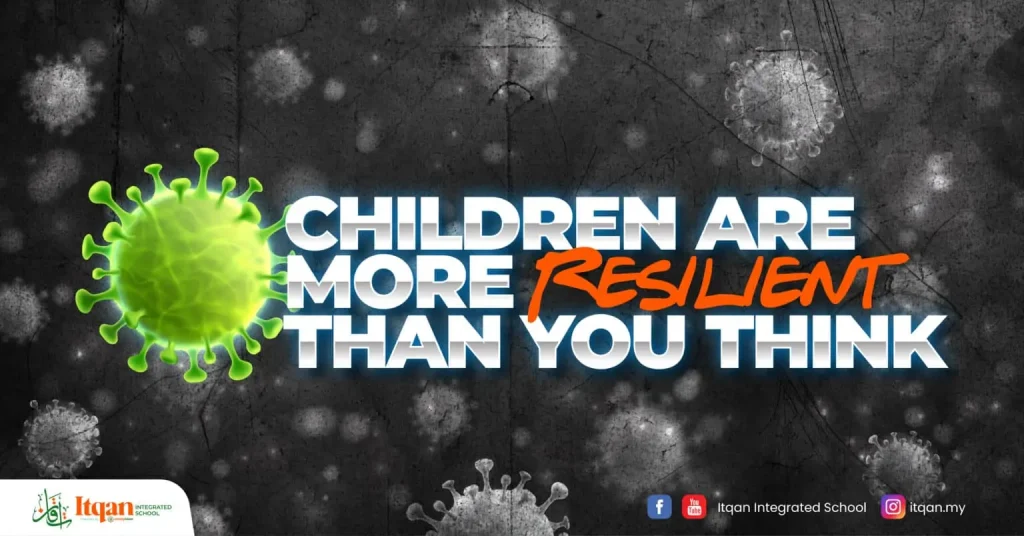Ironically, according to scientific researches, this is not the case!
As much as we are worried about their health, experts believe that children are more resilient to Covid-19 than full-grown adults. According to researchers from University of Texas (Labmate, 2020), after collecting and analysing data from approximately 130 studies from 26 countries worldwide, the team found most children with COVID-19 coped better than their adult counterparts.
From the study, only 19% of the children were found asymptomatic and faced mild common symptoms like fever and cough. However, they recover quicker due to their high levels of antibodies and strong immunity when compared to older people who naturally have lower levels of antibodies as they age.
In another research conducted by KK Women’s and Children’s Hospital (KKH) last year, younger children up to the age of four had the lowest rates of infection – at 1.3 per cent.
Dr Yung Chee Fu of KKH’s Infectious Diseases Service, mentioned that the reason why children are more resilient is the lower expression of the angiotensin-converting enzyme 2 (ACE2) receptors in their bodies. These enzyme receptors are Covid-19’s entry points into body cells.
Professor Paul Tambyah, a senior consultant at the Division of Infectious Diseases at the National University Hospital, said that the exposure to multiple common colds at different ages could allow children to protect themselves from seasonal coronaviruses, such as Covid-19.
In fact, what parents need to worry about is their children’s psychosocial being.
With long school closures leading to being constantly ‘trapped’ at home, it could take a toll on their mental health, according to research (Tso, Wong, Tung et. al., 2020). Children are unfortunately more prone to face decrement of emotional, social functioning as well as physical activity level in families whose members suffer from mental disorders and single parent families.
As for preschool children, they face more problems as it affects them in terms of conduct and hyperactivity. The preschool period is absolutely critical as they go through rapid development and are hypersensitive to their surroundings. Without the right and healthy setting for them, they might be struggling in the long run.
To summarize, it is no doubt that face-to-face learning is absolutely essential for children’s psychosocial development, as they get to learn through play and interaction with their teachers and friends, and it is important to realize and understand that children are actually a lot stronger and more resistant than we think. Thus, let’s rethink the possibilities of in-person learning for the sake of our children’s development and education.
Sources:
https://link.springer.com/article/10.1007/s00787-020-01680-8

